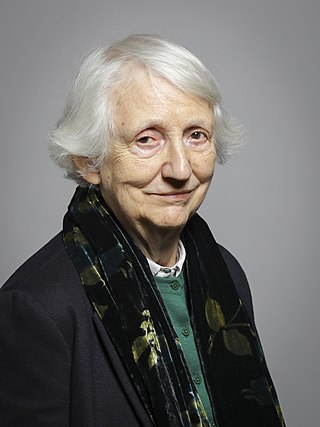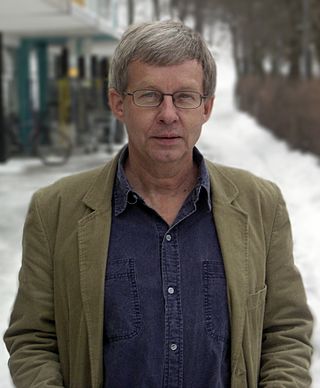Career
In 1997, she moved to Imperial College, London as Leverhulme Reader in Medical Ethics and Law, and in 2001 to the University of Birmingham as John Ferguson Professor of Global Ethics. In 2005, she became Professor of Medical Ethics and Humanities at Birkbeck College, London, where she directed the Birkbeck Institute for the Humanities. She also directed four international research projects for the European Commission, including the Network for European Women's Rights (2004-2006), funded by the Vth Framework Programme of European Commission to investigate contrasting European approaches to ethical and legal issues in reproductive ethics, trafficking, women's political participation and social entitlements (Heather Widdows et al. (eds), Women's Reproductive Rights [Basingstoke: Palgrave Macmillan, 2006]).
She has given expert evidence to bodies including the House of Commons Science and Technology Committee and the European Association of National Bioethics Committees, and has served on many national ethics governance bodies, such as the Ethics Committee of the UK Royal College of Obstetricians and Gynaecologists (2003- 2009).
In 2006, she became the first woman to receive the International Spinoza Lens prize, a bi-annual prize in ethics awarded in the Netherlands. [4]
Bioethics is both a field of study and professional practice, interested in ethical issues related to health, including those emerging from advances in biology, medicine, and technologies. It proposes the discussion about moral discernment in society and it is often related to medical policy and practice, but also to broader questions as environment, well-being and public health. Bioethics is concerned with the ethical questions that arise in the relationships among life sciences, biotechnology, medicine, politics, law, theology and philosophy. It includes the study of values relating to primary care, other branches of medicine, ethical education in science, animal, and environmental ethics, and public health.

Onora Sylvia O'Neill, Baroness O'Neill of Bengarve is a British philosopher and a crossbench member of the House of Lords.

Ulf Torbjörn Harald Tännsjö is a Swedish professor of philosophy and public intellectual. He has held a chair in Practical Philosophy at Stockholm University since 2002 and he is Affiliated Professor of Medical Ethics at Karolinska Institute. Tännsjö was Associate Professor of Philosophy at Stockholm University from 1976 to 1993 and Research Fellow in Political Philosophy at the Swedish Research Council in the Humanities and Social Sciences between 1993 and 1995. Thereafter, he was a professor of Practical Philosophy at Göteborg University 1995-2001.
Heidi M. Ravven is the Bates and Benjamin Professor of Classical and Religious Studies at Hamilton College, where she has taught her specialization, Jewish Philosophy, and general Jewish Studies since 1983. She is a Fellow in Neurophilosophy of the Integrative Neurosciences Research Program, which is co-directed by Vilayanur Ramachandran and Kjell Fuxe. She has been appointed Visiting Professor of Philosophy in the School of Marxism at Northeast Normal University, Changchun, China, for 2017-20.
Ethics or moral philosophy is a branch of philosophy that involves systematizing, defending, and recommending concepts of right and wrong conduct. The field of ethics, along with aesthetics, concern matters of value, and thus comprise the branch of philosophy called axiology.
Jonathan D. Moreno is an American philosopher and historian who specializes in the intersection of bioethics, culture, science, and national security, and has published seminal works on the history, sociology and politics of biology and medicine. He is an elected member of the National Academy of Medicine.
Ruth Macklin is an American philosopher and retired professor of bioethics.
Judith Andre is a philosophy professor (retired) and virtue theorist. She earned her Ph.D. at Michigan State University in 1979 and has taught courses on ethical issues in global public health, ethics and development, animal welfare, and virtue theory at Old Dominion University and Michigan State University before retiring.
Leonard Michael Fleck is an American philosophy professor and medical ethicist. He earned his Ph.D. from St. Louis University in 1975 and taught courses at St. Mary's College (Indiana) before going on to teach and at Michigan State University where he currently holds a dual appointment with the philosophy department and the Center for Ethics and Humanities in the Life Sciences. Fleck was also a member of Hillary Clinton's Task Force on Health Reform in 1993 and the staff ethicist for the Michigan governor's task force on access to health care in 1989-1990.
Hilde Lindemann is an American philosophy professor and bioethicist and emerita professor at Michigan State University. Lindemann earned her B.A. in German language and literature in 1969 at the University of Georgia. Lindemann also earned her M.A. in theatre history and dramatic literature, in 1972, at the University of Georgia. Lindemann began her career as a copyeditor for several universities. She then moved on to a job at the Hastings Center in New York City, an institute focused on bioethics research, and co-authored book The Patient in the Family, with James Lindemann Nelson, before deciding to earn a Ph.D. in philosophy at Fordham University in 2000. Previously, she taught at the University of Tennessee and Vassar College and served as the associate editor of the Hastings Center Report (1990–95). Lindemann usually teaches courses on feminist philosophy, identity and agency, naturalized bioethics, and narrative approaches to bioethics at Michigan State University.
Jamie Lindemann Nelson is a philosophy professor and bioethicist currently teaching at Michigan State University. Nelson earned her doctorate in philosophy at the State University of New York at Buffalo in 1980 and taught at the University of Tennessee at Knoxville and St. John's University before moving to Michigan State University. In addition, Nelson was an Associate for Ethical Studies at The Hastings Center from 1990–95 and is both a Woodrow Wilson Visiting Fellow and a Fellow of the Hastings Center. Nelson usually teaches courses on biomedical ethics, ethical theory, moral psychology, feminist theory, and philosophy of language.
Juliana González Valenzuela is a Mexican philosopher.
David DeGrazia is an American moral philosopher specializing in bioethics and animal ethics. He is Professor of Philosophy at George Washington University, where he has taught since 1989, and the author or editor of several books on ethics, including Taking Animals Seriously: Mental Life and Moral Status (1996), Human Identity and Bioethics (2005), and Creation Ethics: Reproduction, Genetics, and Quality of Life (2012).
Susan James is a British professor of philosophy at Birkbeck College London. She has previously taught at the University of Connecticut and the University of Cambridge. She is well known for her work on the history of seventeenth and eighteenth century philosophy.
Joan Callahan was a Professor Emerita of Philosophy at the University of Kentucky, an institution where she taught for more than twenty years and served in a variety of roles, including as director of the Gender and Women's Studies Program. Callahan's research has focused on feminist theory, critical race theory, ethics, social and political philosophy, the philosophy of law, and on the junctions of these topics.
Jessica Pierce is an American bioethicist, philosopher, and writer. She currently has a loose affiliation with the Center for Bioethics and Humanities, University of Colorado Denver, but considers herself mostly independent. She has previously worked variously at the University of Colorado Boulder, the University of Nebraska Medical Center, and Randolph-Macon Women's College, having studied at the University of Virginia, Harvard Divinity School and Scripps College.
Rosemarie "Rosie" Tong is an American feminist philosopher. The author of 1998's Feminist Thought: A More Comprehensive Introduction, an overview of the major traditions of feminist theory, she is the emeritus distinguished professor of health care ethics in the Department of Philosophy at the University of North Carolina, Charlotte.
Leslie Pickering Francis is an American philosopher, currently Distinguished Professor of Philosophy and Distinguished Professor of Law at University of Utah.
Susan Sherwin is a Canadian philosopher. Her pioneering work has shaped feminist theory, ethics and bioethics, and she is considered one of the world's foremost feminist ethicists.

Lisa Campo-Engelstein, Ph.D., is an American bioethicist and fertility/contraceptive researcher. She currently works at the University of Texas Medical Branch as the Harris L. Kempner Chair in the Humanities in Medicine Professor, the Director of the Institute for Bioethics & Health Humanities, and an Associate Professor in Preventive Medicine and Population Health. She has been included in the BBC's list of 100 inspiring and influential women from around the world for 2019.



